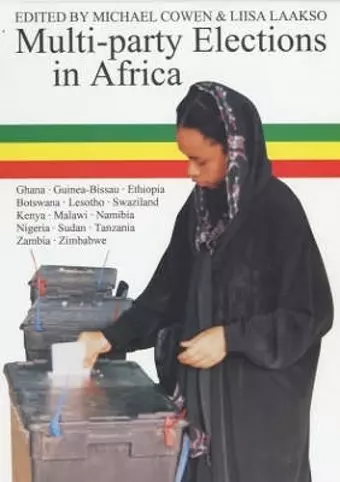Multi-party Elections in Africa
Liisa Laakso author Michael Cowen editor
Format:Paperback
Publisher:James Currey
Published:17th Jan '02
Should be back in stock very soon

A volume of electoral studies of multiparty politics in 14 African countries during the 1990s. Most of the studies in this book are about national elections in Anglophone Africa. There are also less well-known examples from Sudan, Ethiopia and Guinea Bissau. The collection also features studies of the local elections in Namibia and of a significant by-election in Malawi. The multiparty period has been put, wherever possible, within the historical context of earlier elections in Africa. Questions addressed include: how did incumbent governing regimes learn to live with multiparty politics? Why have some elections been so closely fought and others have suffered from apathy? Why has there been relatively open political expression and activity when the elections have increased the political and economic manipulation by incumbent governments? Why have the elections of the 1990s been so marked by local and ethnic variations? To what extent did this wave of democracy result from pressure from donor countries? North America: Palgrave
... the most definitive analysis to date of Africa's fraught transition towards local, national and regional democracies ... It should be required reading for all both on and off the continent concerned with the limitations of participation, especially election monitors and NGOs as well as candidates and donors. -- Timothy M. Shaw * ROUND TABLE *
Cowen and Laakso's collection is particularly valuable because of its coverage of unusual cases. In addition to fairly standard cases such as Kenya, Malawi, Zambia,Tanzania, Zimbabwe, Ghana and Nigeria.... Ethiopia, Guinea-Bissau, and the Sudan are also given chapters of their own, along with a comparative study of Botswana, Lesotho and Swaziland...One analytic commonality running through most, if not all, of the contributions is a critique of the liberal project, defined as an emphasis on choice and an assumption that if the institutions are in place, then voters can make a free and fair choice. Critiques of this position include analyses of how deep-rooted gender socialization may exclude women from the political sphere (Ethiopia), how economics can affect voting decisions (Ghana), and how majorities can use elections to repress minorities (Sudan). Others emphasize that elections are not really about choice but about legitimation and/or closing off other arenas of political action to the masses (Botswana, Lesotho and Swaziland)... -- Sara Rich Dorman * AFRICAN AFFAIRS *
...this is a very useful book and it will be of much use not only for students of African elections, but also for comparativists seeking to identify what was unusual or notable about elections in the region in 1990s. -- Jeff Haynes * COMMONWEALTH & COMPARATIVE POLITICS *
ISBN: 9780852558430
Dimensions: unknown
Weight: 606g
400 pages